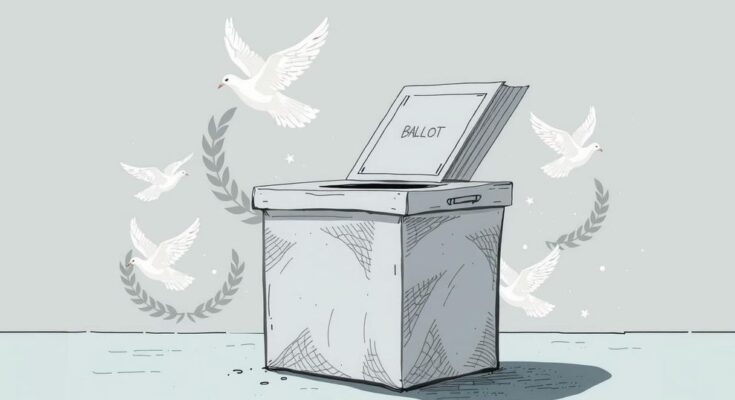A recent study by Gender Links has revealed that Botswana, despite its democratic reputation, is experiencing significant erosion in women’s political participation. With only a scant representation of 8.7% of women in parliament and a diminutive 4% media representation of women during elections, concerns about gender inequality in political spheres are escalating. While improvements in cabinet representation were noted, a comprehensive strategy is needed to enhance women’s involvement in governance.
Botswana, known for its stable democracy in Sub-Saharan Africa, faces alarming democratic erosion regarding women’s political participation, as outlined in a recent study by Gender Links. Following the electoral victory of the Umbrella for Democratic Change (UDC), concerns arose about women’s diminishing representation in political decision-making, questioning the true essence of democracy within the nation.
The report revealed that significant advancements towards gender equality have faltered, with only three of the 28 female candidates securing seats in the National Assembly. Consequently, women’s representation in parliament has plummeted to 8.7%, placing Botswana at the lowest position within the Southern African Development Community (SADC) for this metric, even as the global community strives for women’s equal participation.
The study indicated a decline in female representation at the local government level throughout successive elections, currently standing at 15%. Notably, however, there was an increase in female cabinet representation from 17% to 22%, suggesting a commitment from the new government to foster progress in this regard. Despite a slight improvement in female political participation during the 2019-2024 period, the overall context remains concerning, characterized by the lowest representation in SADC history.
Mabetha Manteboheleng, the Women’s Political Participation manager at Gender Links, emphasized the stark reality of gender inequality in Botswana’s political landscape. She remarked on the media’s role in amplifying women’s voices, particularly during crucial elections. The Gender Links audit was part of a broader project to enhance women’s political participation through training, dialogue, and mentoring.
While over 100 women politicians trained from various political parties, the 2024 elections saw a mere increase in women candidates from 11 to 28, without corresponding gains in parliamentary seats. The report also highlighted a concerning statistic regarding media representation, revealing that women accounted for only 4% of news sources during election coverage, further marginalizing their voices.
Colleen Lowe Morna, a special advisor at Gender Links, expressed her dismay over the election outcomes, stating that it marked the lowest representation she had seen in over twenty years of gender and media monitoring across Southern Africa.
The recent audit by Gender Links underscores a troubling trend of democratic erosion in Botswana, particularly with regard to women’s political representation. Despite some minor advancements, such as the increase in female cabinet members, overall participation remains alarmingly low. The lack of representation in media coverage compounds this issue, further marginalizing women’s voices in political discourse. It is imperative for Botswana to reassess its strategies for promoting gender equality to uphold its democratic integrity.
Original Source: allafrica.com




